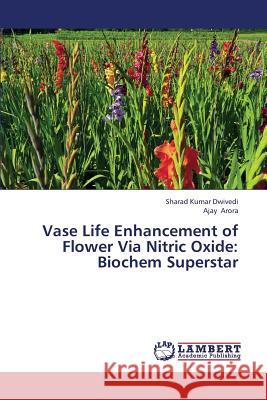Vase Life Enhancement of Flower Via Nitric Oxide: Biochem Superstar » książka
Vase Life Enhancement of Flower Via Nitric Oxide: Biochem Superstar
ISBN-13: 9783659401091 / Angielski / Miękka / 2013 / 112 str.
All cut flowers are destined to die, and the challenge for post-harvest researchers is to slow the processes controlling flower death to enable cut flowers to reach distant markets with a display life. Nitric oxide (NO), provided by the fumigation from sodium nitroprusside (SNP) on delaying senescence in gladiolus cultivar Snow Princess in relation to physiological and biochemical parameters and expression of various senescence associated genes (SAGs). Vase life of flower spikes was significantly increased and fresh weight was retained for longer duration by treatment with NO than control (distilled water). Spikes kept in vase solution containing NO also maintained higher membrane stability content, while lipid peroxidation in terms of thiobarbutric acid reactive substances (TBARS) and lipoxygenase (LOX) activity were reduced in comparison to untreated spike. The activities of various antioxidant enzymes viz., superoxide dismutase (SOD), catalase (CAT), total peroxidase (POX) and ascorbate peroxidase (APX) were higher in NO treated florets.
All cut flowers are destined to die, and the challenge for post-harvest researchers is to slow the processes controlling flower death to enable cut flowers to reach distant markets with a display life. Nitric oxide (NO), provided by the fumigation from sodium nitroprusside (SNP) on delaying senescence in gladiolus cultivar Snow Princess in relation to physiological and biochemical parameters and expression of various senescence associated genes (SAGs). Vase life of flower spikes was significantly increased and fresh weight was retained for longer duration by treatment with NO than control (distilled water). Spikes kept in vase solution containing NO also maintained higher membrane stability content, while lipid peroxidation in terms of thiobarbutric acid reactive substances (TBARS) and lipoxygenase (LOX) activity were reduced in comparison to untreated spike. The activities of various antioxidant enzymes viz., superoxide dismutase (SOD), catalase (CAT), total peroxidase (POX) and ascorbate peroxidase (APX) were higher in NO treated florets.











